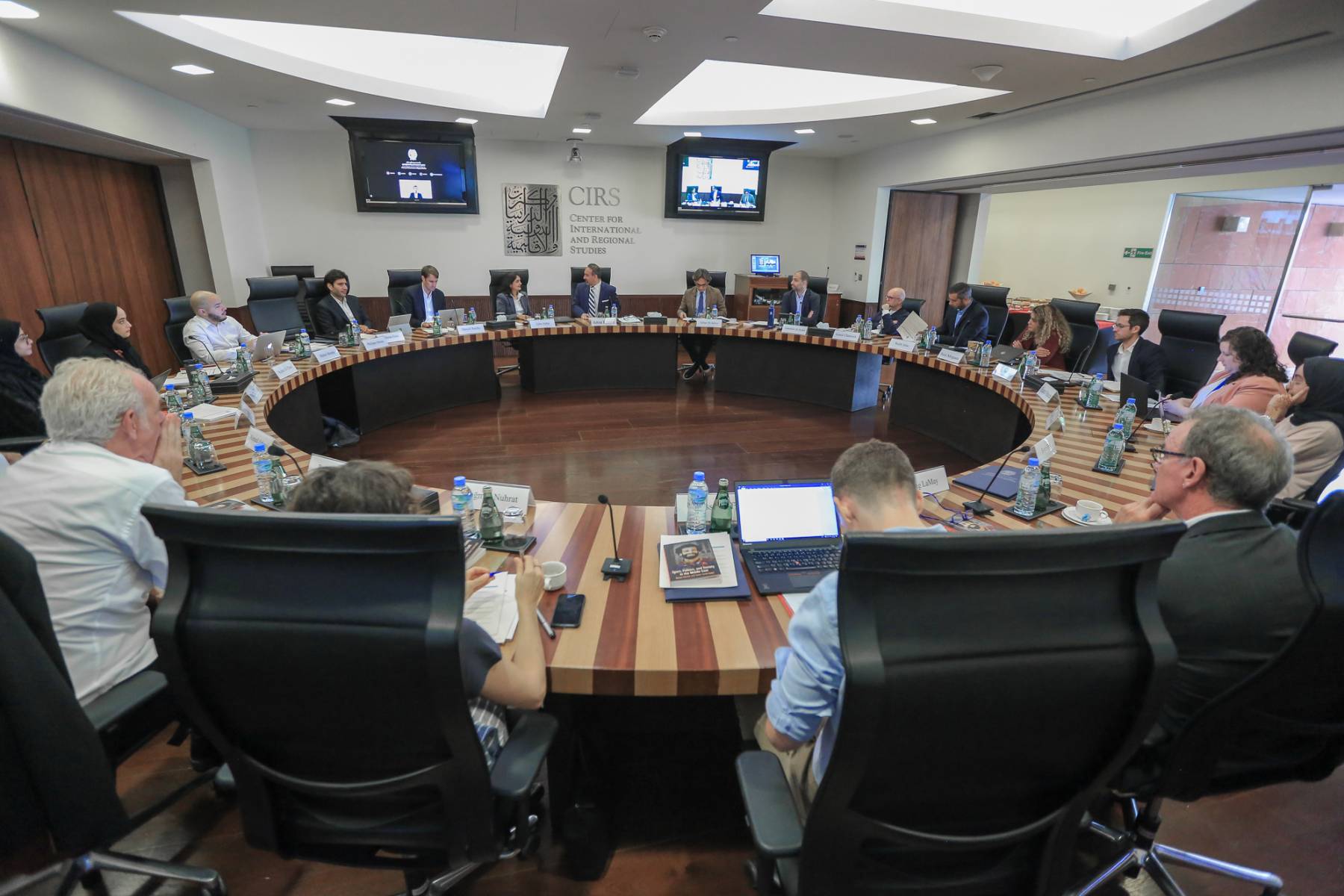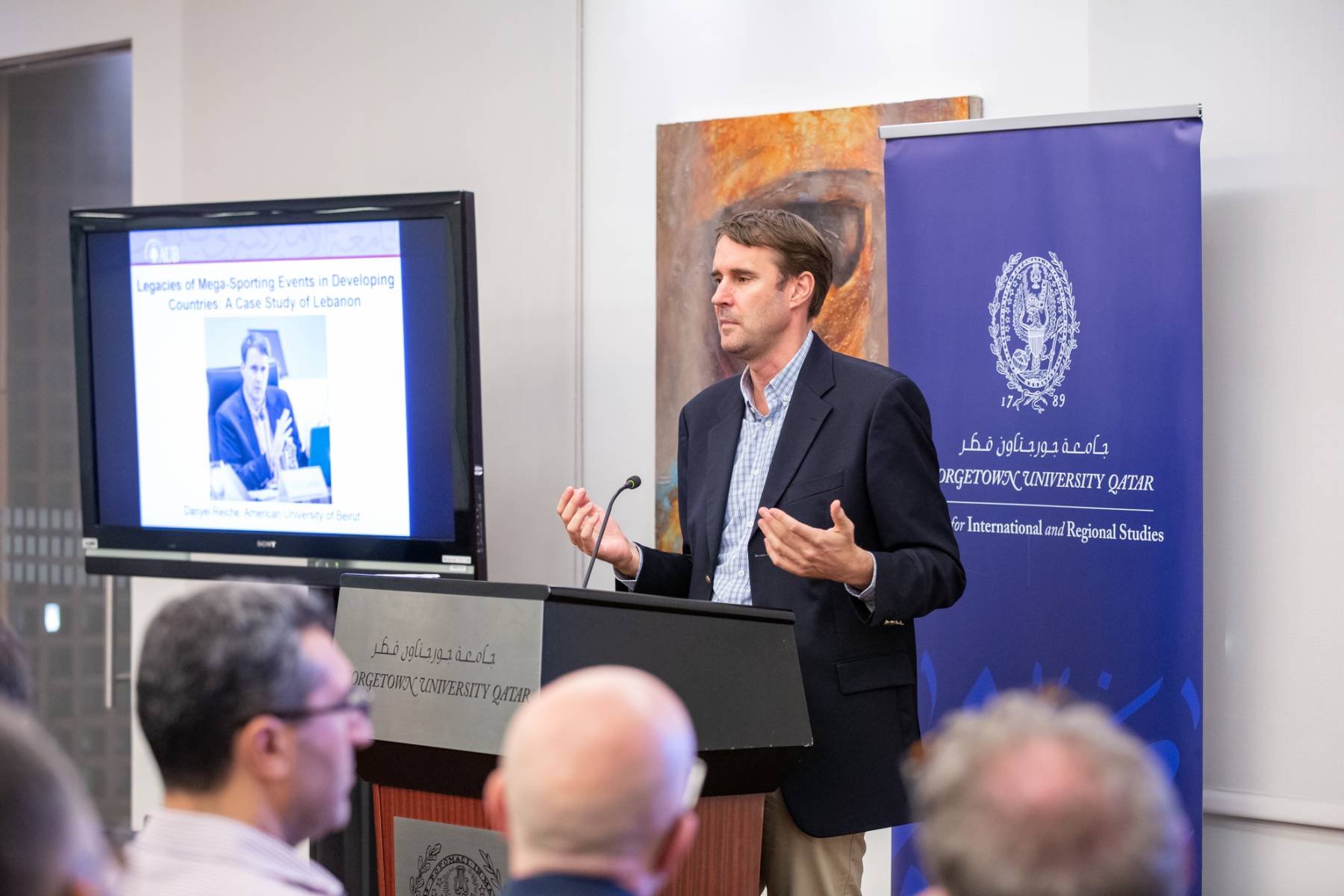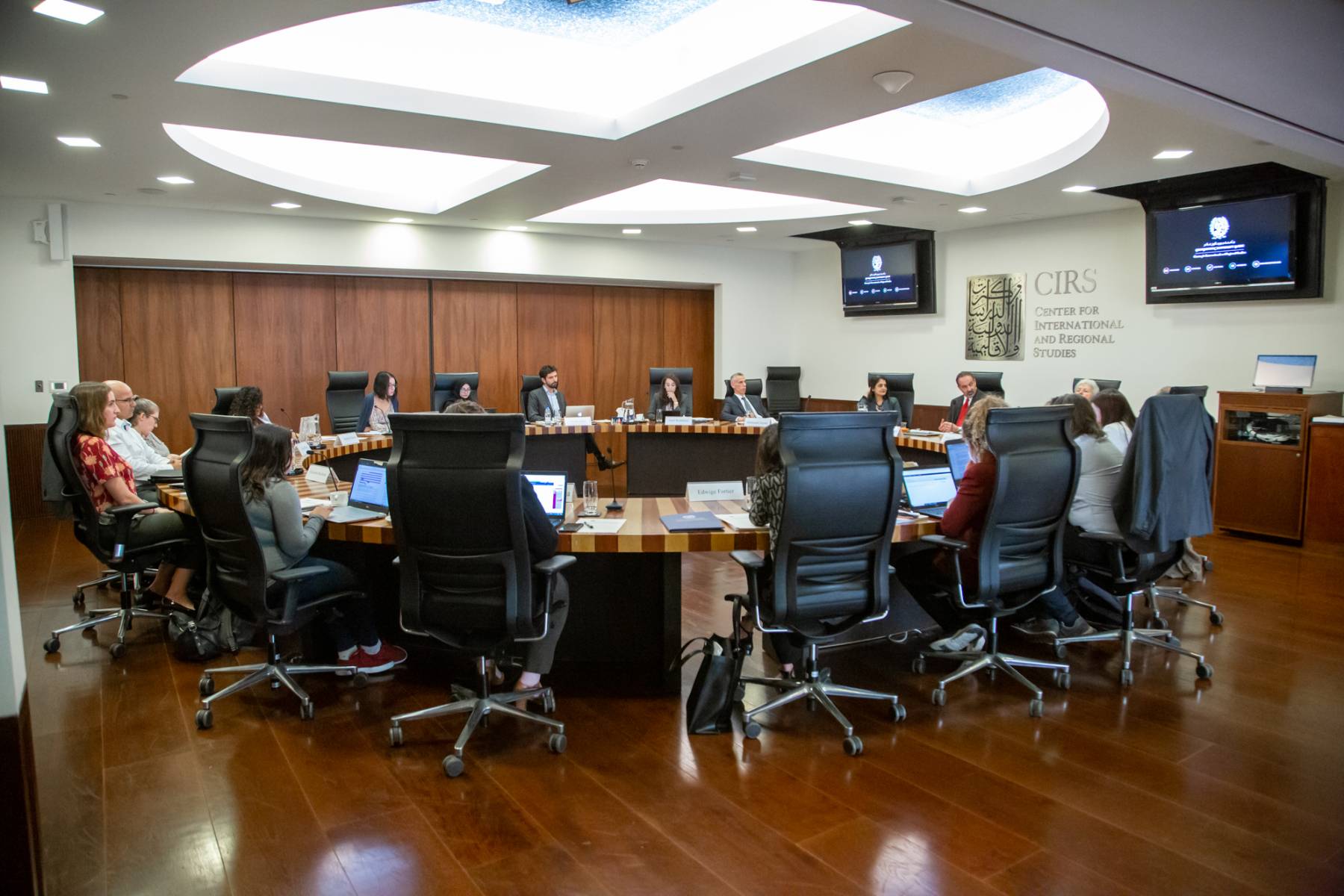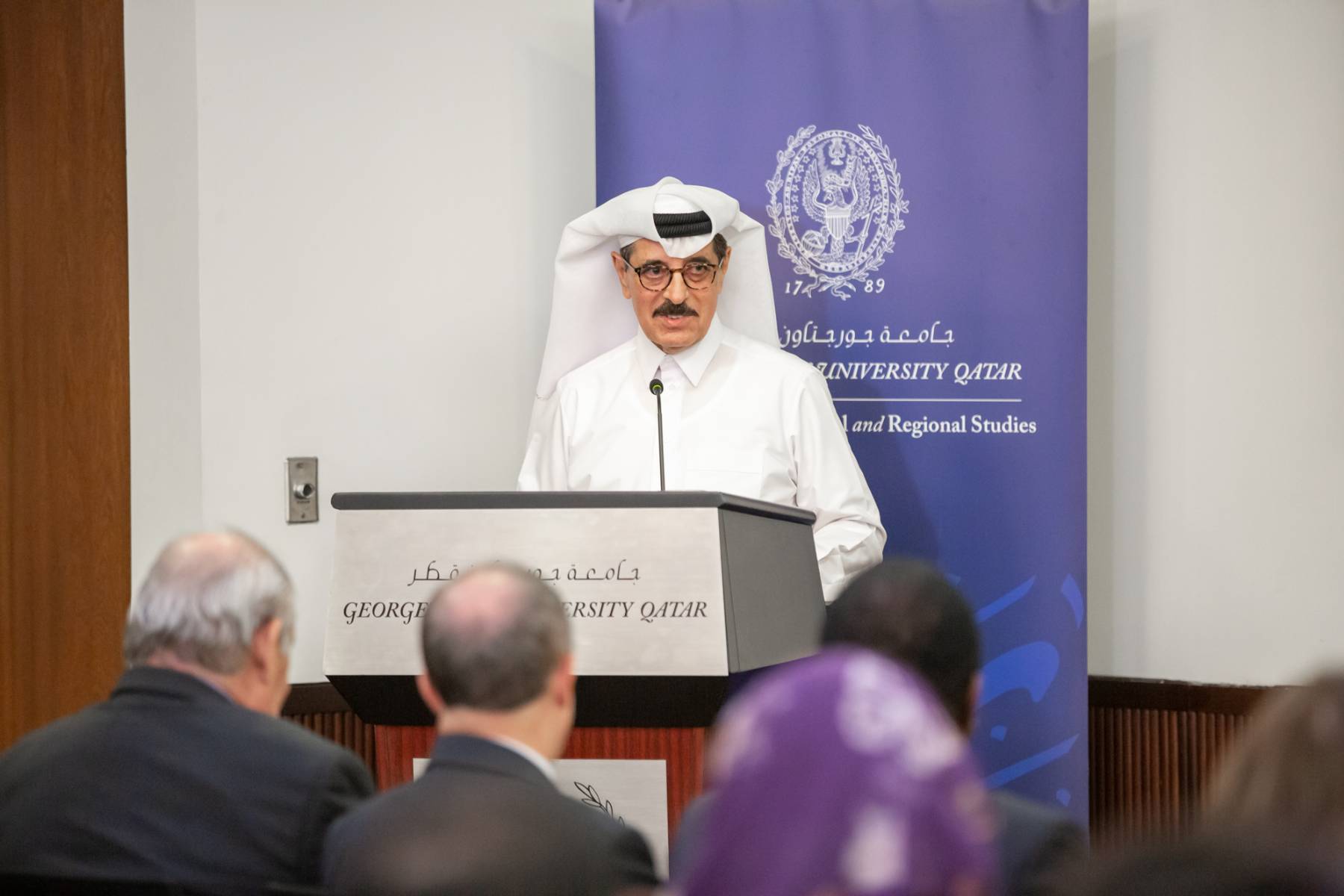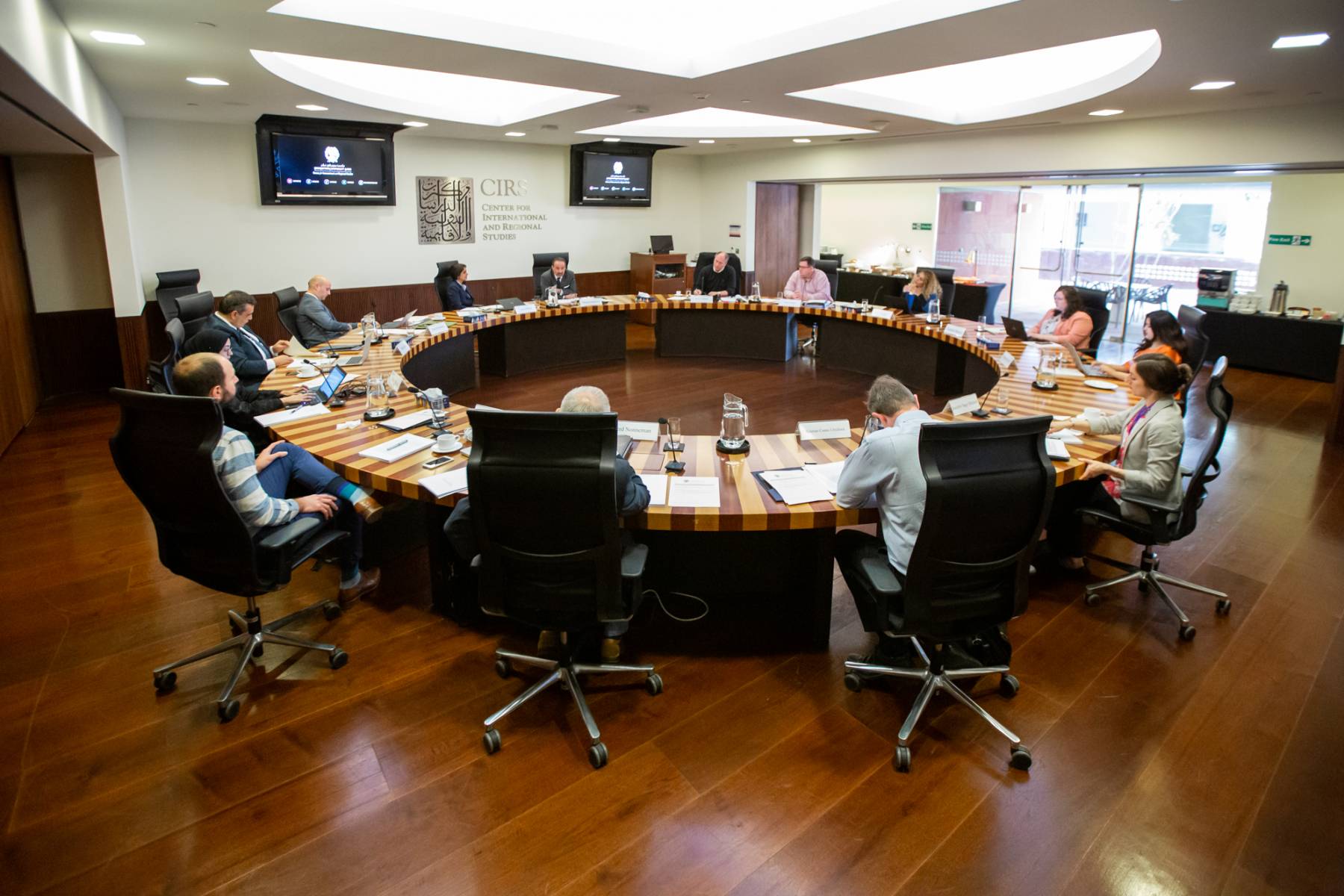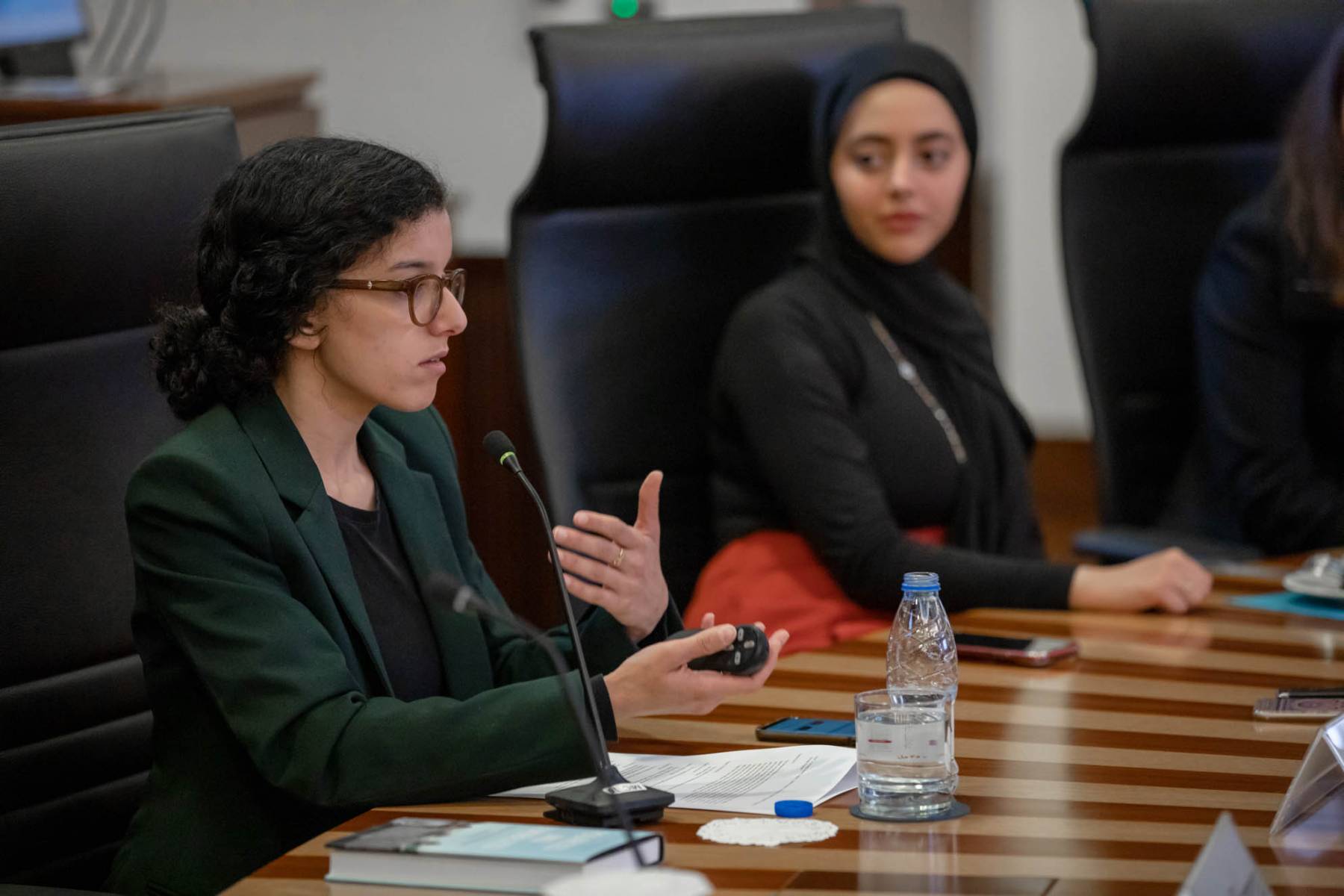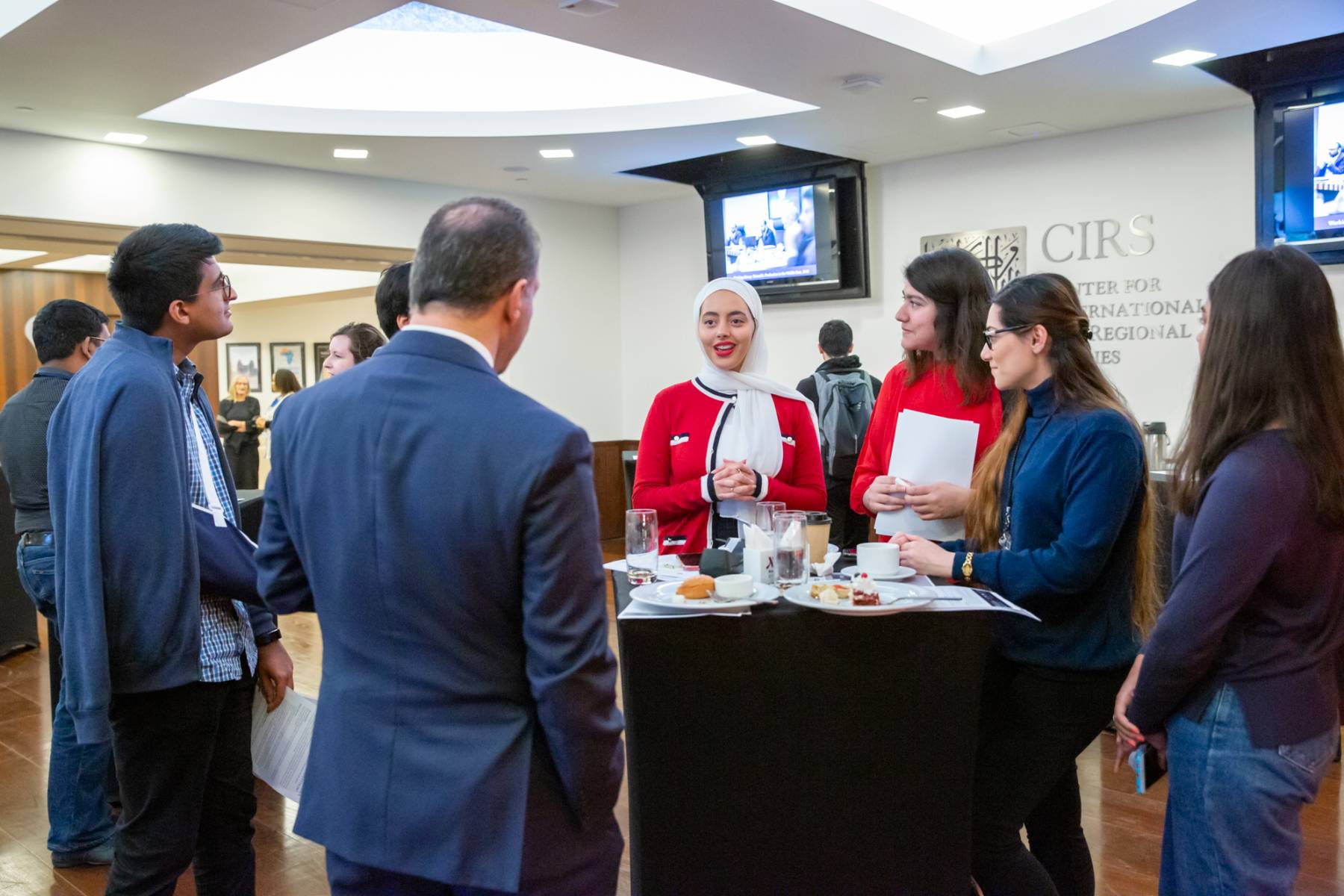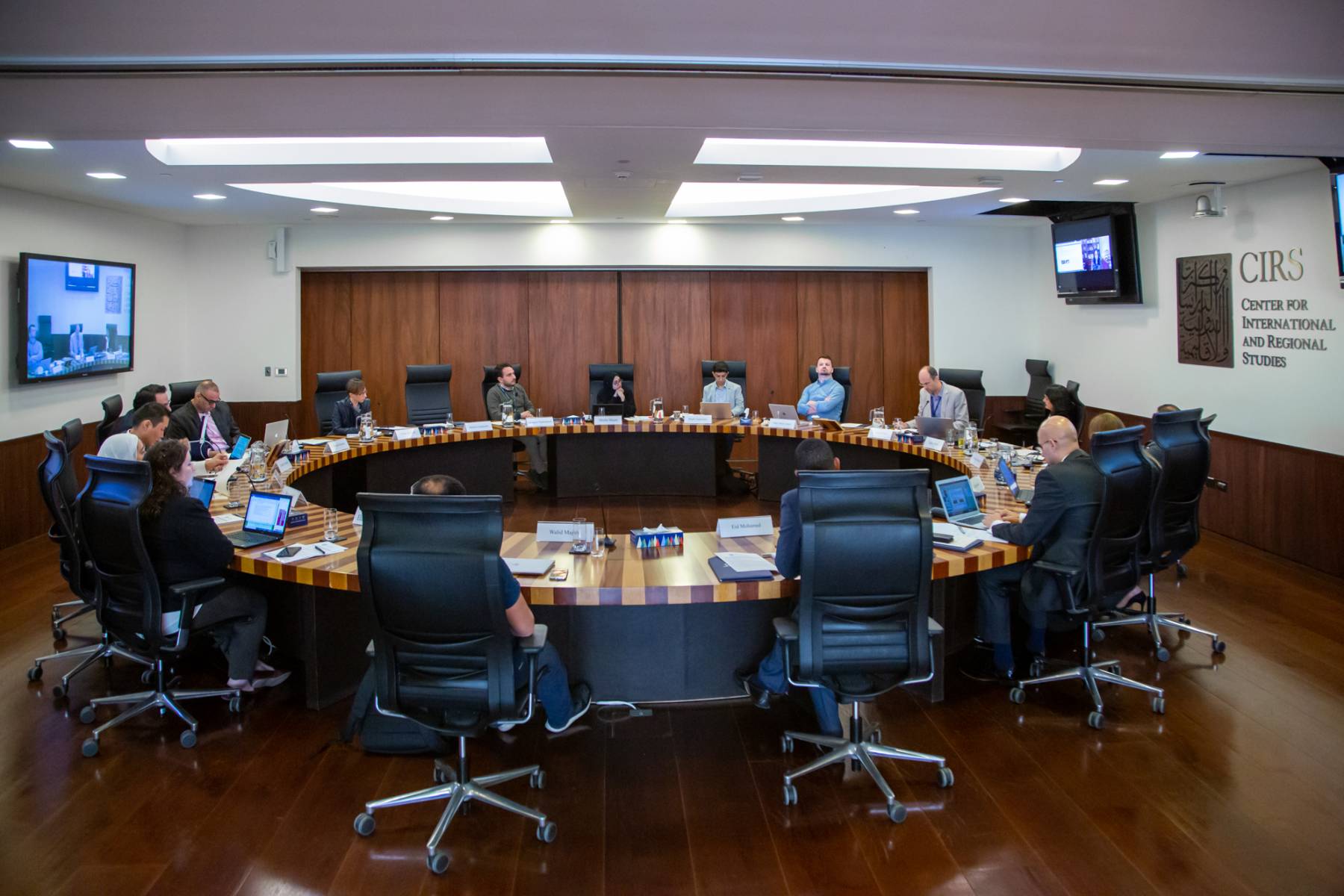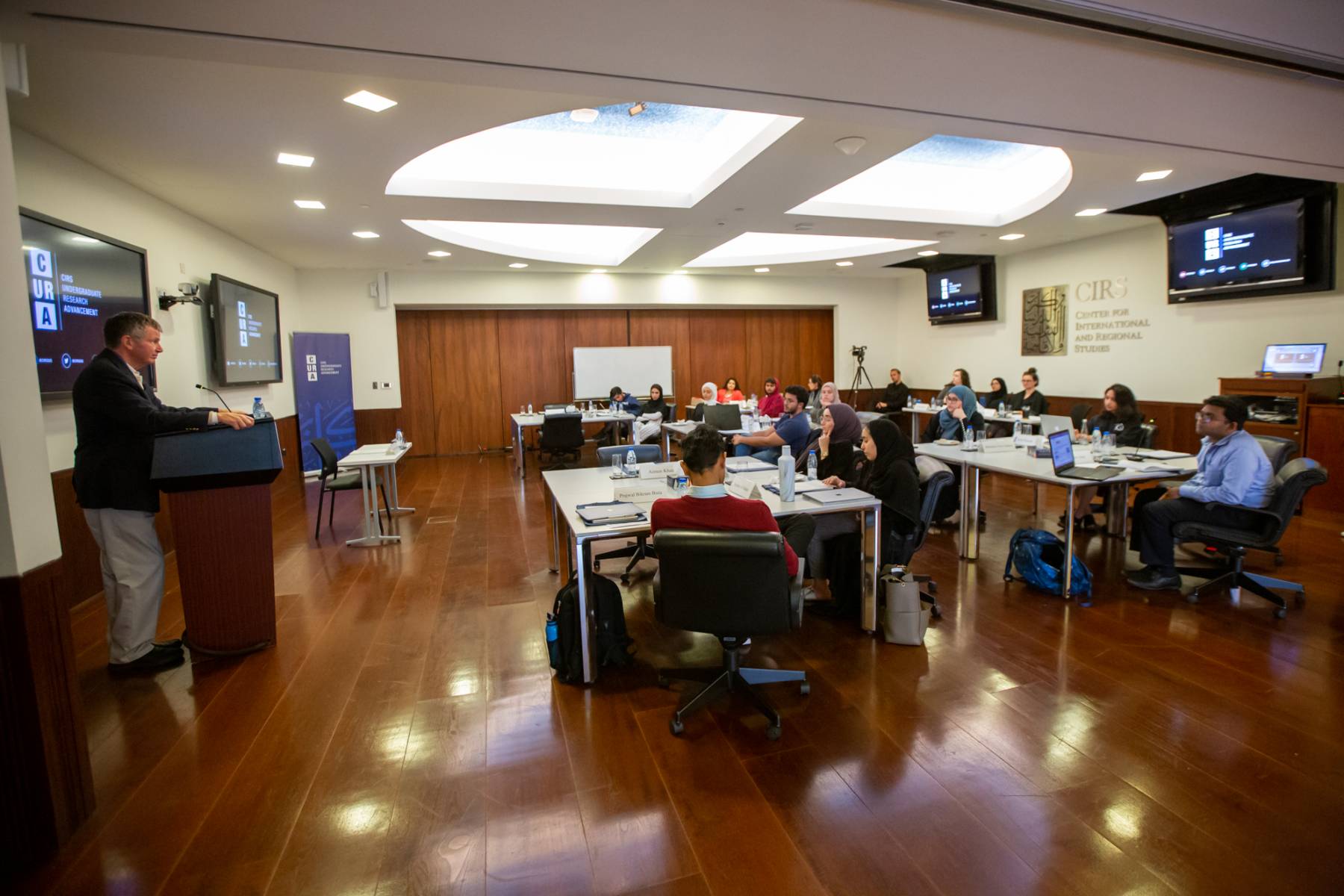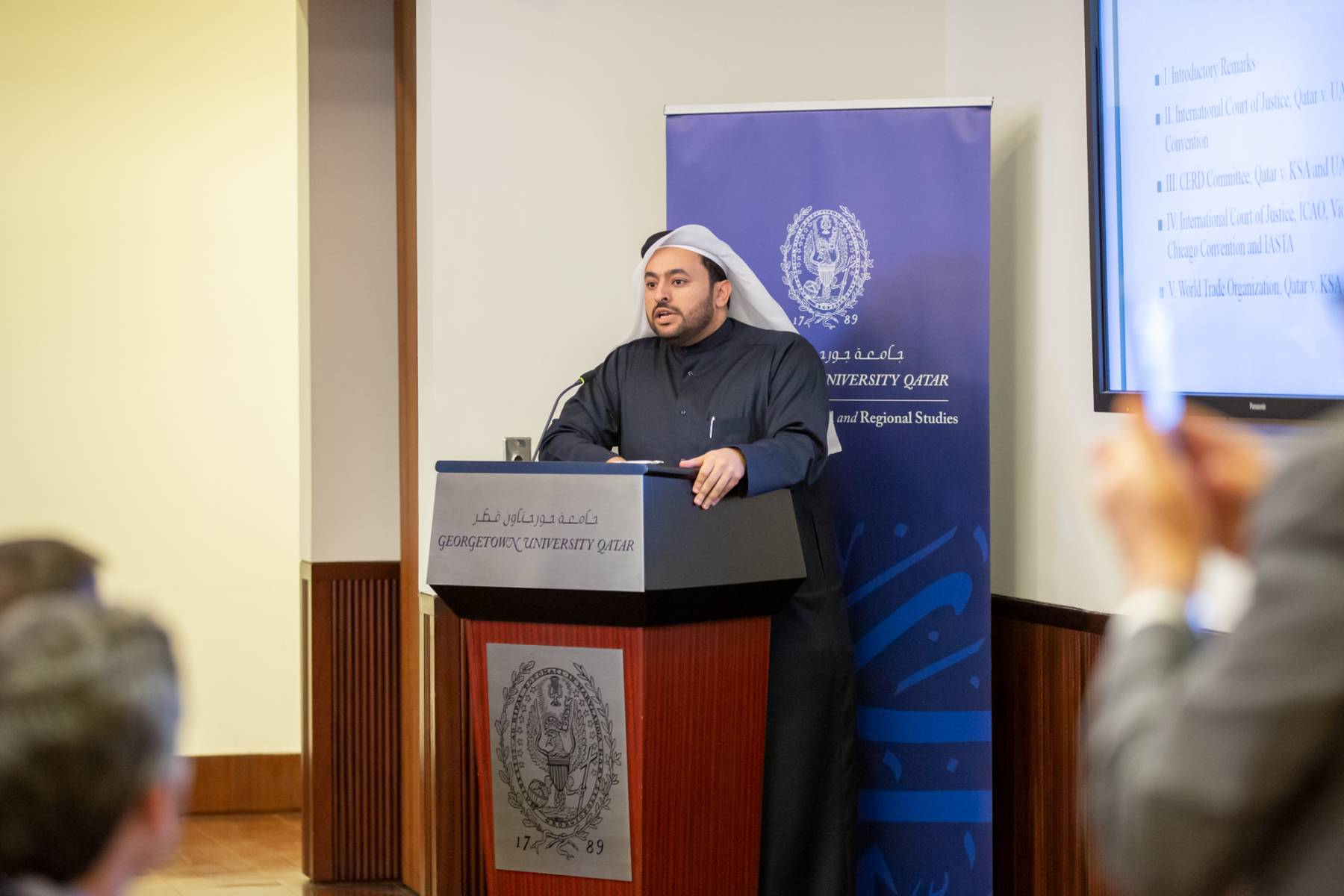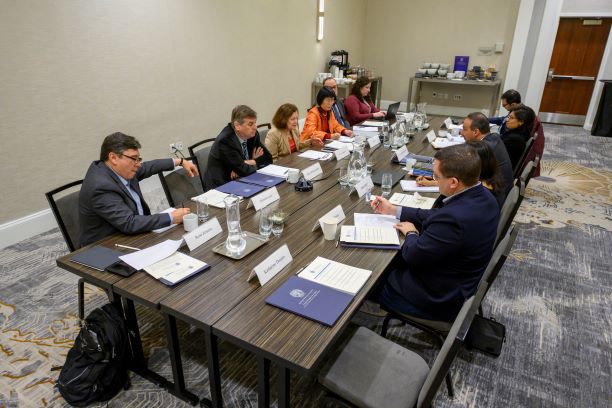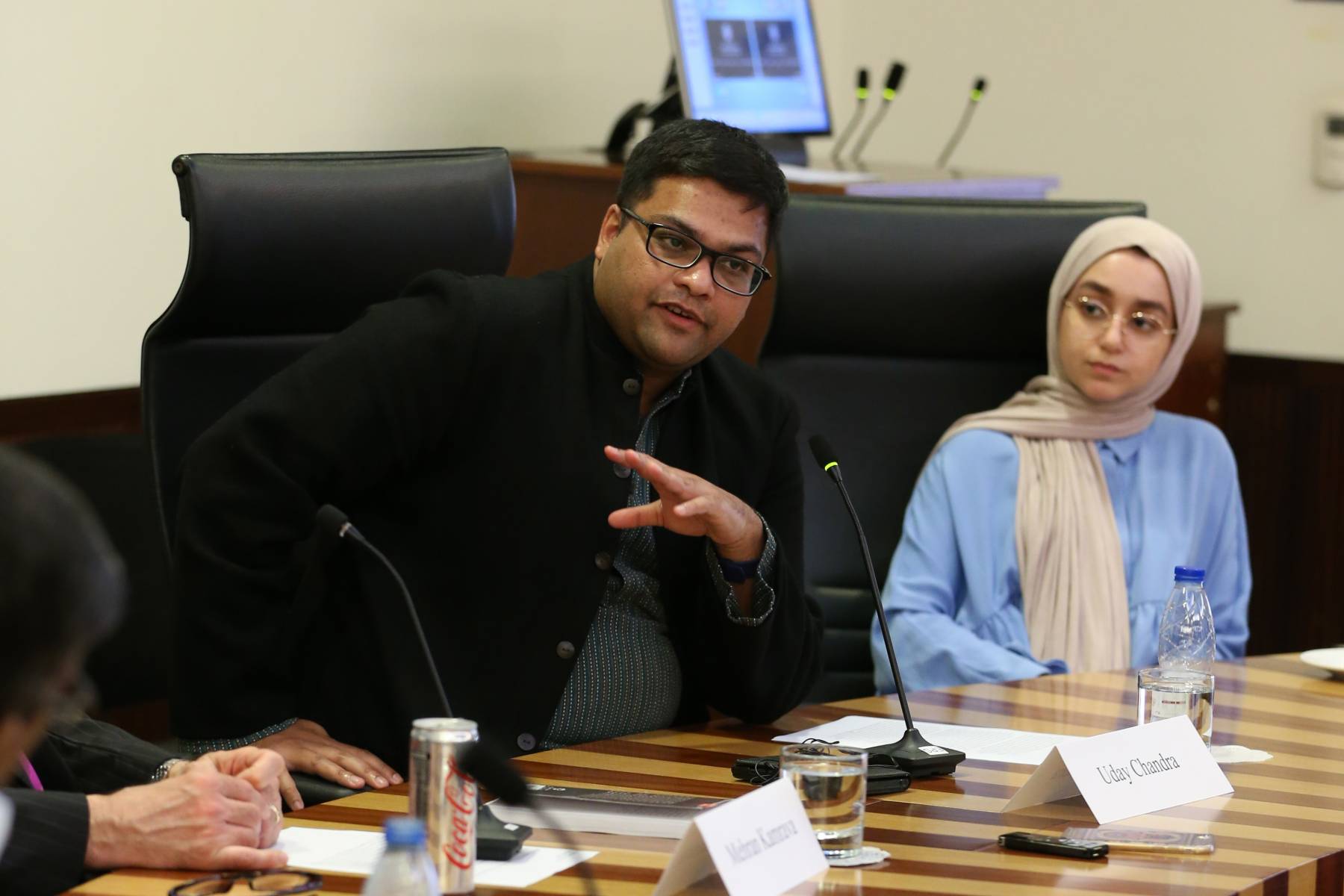Football in the Middle East Working Group I
On October 27-28, 2019, the Center for International and Regional Studies held the inaugural working group for its research initiative on “Football in the Middle East.” The meeting brought together regional and international scholars and experts to discuss some of the understudied areas related to football in the region and to identify original research questions…
